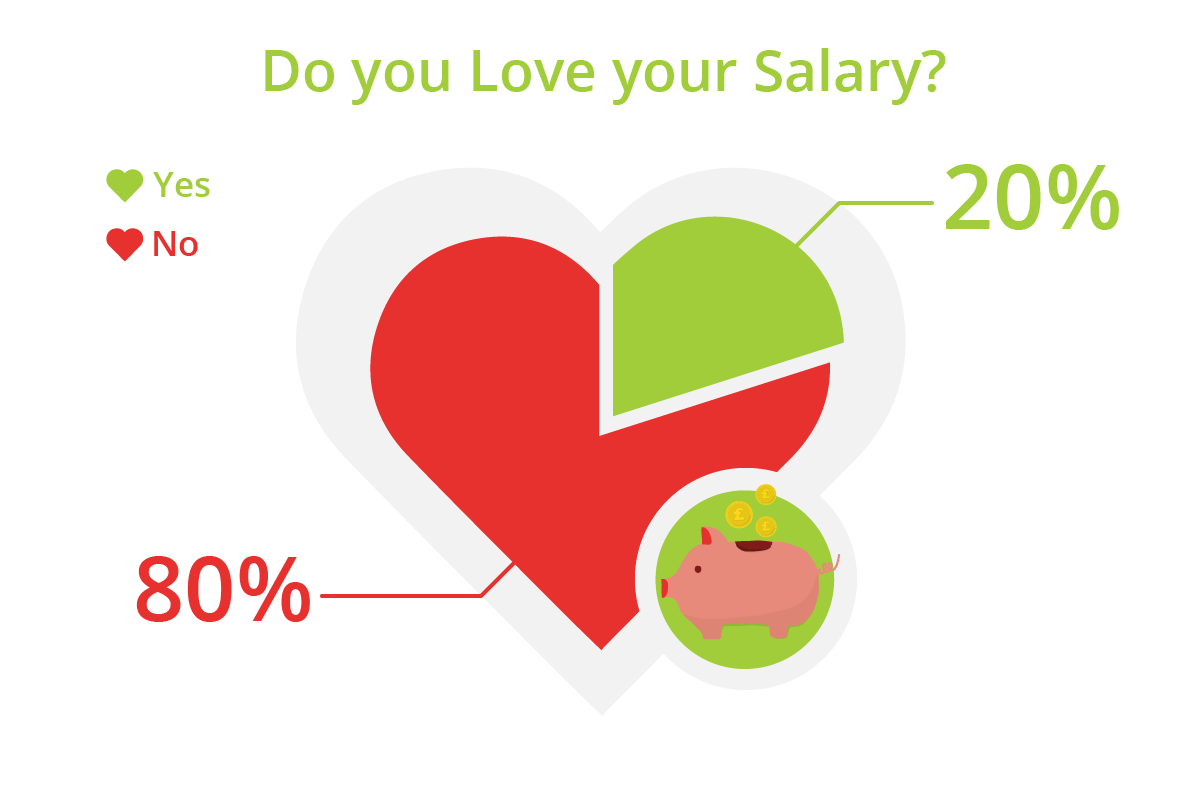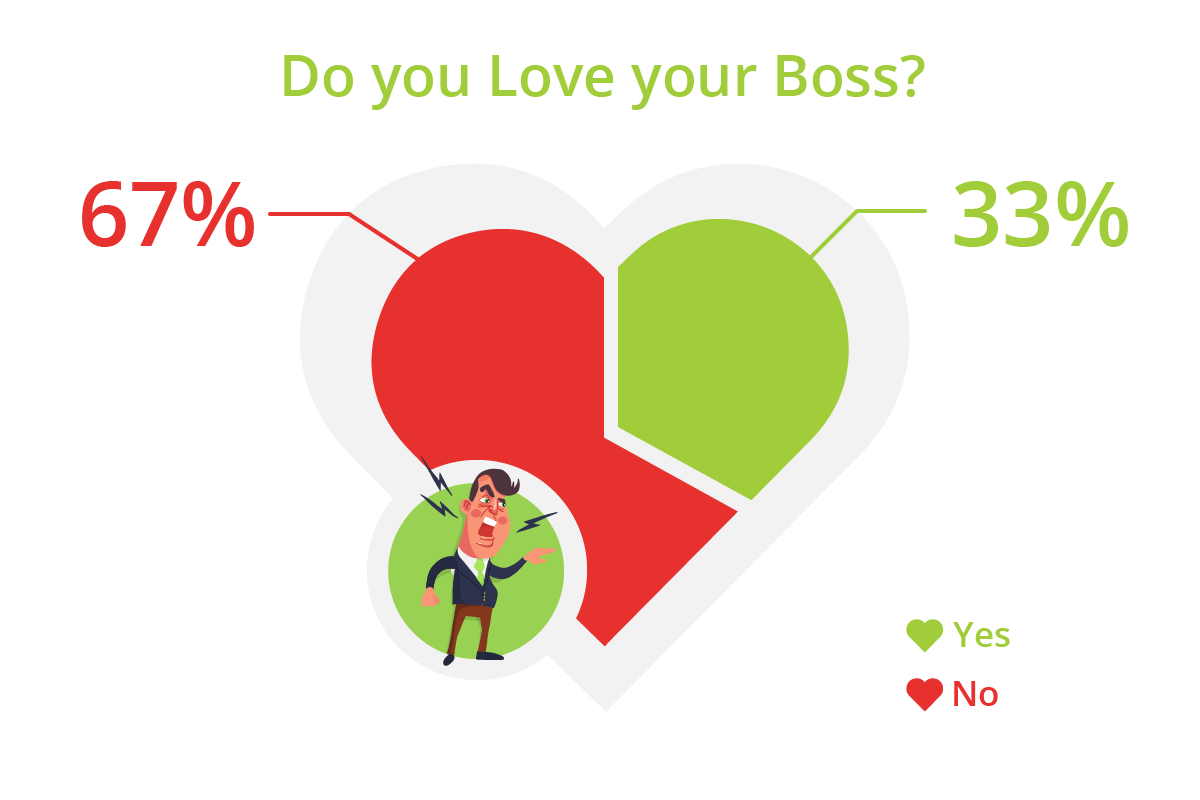JobsTrackR has long been dedicated to helping jobseekers find their dream job. Acting as both an independent jobs board and a career advisor, JobsTrackR…
Everyone has experienced a bad working day or even a bad work week—it’s to be expected. But if your workdays merge into a feeling of detachment and unhappiness, this is a warning sign. When JobsTrackR quizzed our users about aspects of their jobs, 61% said they loved their job role. If you were in the 39% that didn’t, here are 5 signs you need to move on from your current job.
1. Your salary isn’t up to your standards
Wanting to quit your job over the salary is something many people experience, and we don’t blame you. Money can be a hard subject to talk about and it’s important not to hold back from communicating salary issues with your employer. Remember your worth; your employer should never pay you as little as possible. When you do decide to bring up the issue, don’t overestimate the amount you think you should earn; in this situation, it’s important you do your research.
Assess how much experience you’ve gained in your job sector, what qualifications you have, and the level of difficulty and responsibility in your work to see if you’re due a raise. Over a certain time period, if you’ve taken on more tasks above your pay grade, you may have grounds to request an increase in wage. If you’ve started to mentor and manage people because of your experience in the company, this could also be a reason to negotiate your salary.
If discussing your salary doesn’t prompt the change you would like, then maybe it’s time to find another job that could earn you a higher salary. JobsTrackR also found that 80% of the quiz-takers didn’t love their salary.

2. The work culture is miserable
When you enter your workplace, the last thing you want to feel is a low atmosphere amongst your colleagues. Ideally, you want to be happy with the people you work with because they can affect your mood and, consequently, your job performance. A pessimistic atmosphere can kill your passion.
Many thrive on a good work culture, which can include team day outings or after work drinks. The ideal company culture has a buzz of positivity and rewards employees with work events. If you find this doesn’t happen at your workplace, it may be something you want to suggest. If things go sour and it’s clear the mood will stay miserable, move on and find a better work culture.
3. No work progression
Building your career can come with delays, especially if you work for a small company. Some companies are willing to pay or contribute to qualifications and courses but some might not have the budget to elevate you to the next level. Gaining experience over time can lead to higher job positions. Most companies acknowledge if you have developed in your job role, allowing you to naturally follow steps to become a team leader or manager.
If you feel this isn’t happening for you, it’s worth checking with your manager the progression plans in your workplace. Don’t let this issue slide; in most cases, employers would like to see you stay, especially if you are a valuable employee. However, if there isn’t really a progression path for you at your current company, it’s worth looking elsewhere to get back on that progression ladder.
4. Dreading each day
The alarm goes off at 6:00am on Monday and you pause it, yearning for an extra hour’s lie-in. Everyone does it, but if you feel like this constantly and dread those eight hours at the office, you should move on. If you have noticed a drop in your work ethic and enthusiasm, it may be time to find a new job.
You’ll find yourself procrastinating at work. Though understandable on occasion, if you find nothing engaging about your day, this may be the reason you hate it. Before making any decisions, evaluate why you feel like this to decide your next career move. If you can adjust something at work, your day-to-day working life might grow better.
5. Your boss sucks
There’s a saying that ‘most people quit bosses, they don’t quit jobs’. Your general day can consist of following requests from your manager or director and, while businesses have a management tier, you may feel a strain in your working or simply disagree with how things are managed. This can affect other areas of your life.
According to the data we collected, 67% of people didn’t love their boss; if you find your relationship with your boss is dismal and have tried unsuccessfully to improve it, a different company with a different boss could help.

Beyond these warning signs, you may simply just want to move on from your current position. No one knows how you feel better than you, and if that means you need to leave work because you’re sure you’ll be better off somewhere else, follow that instinct, explore more job opportunities and get started with writing that resignation letter.
If your decision is to move on my best advice would be to have something new lined up before leaving as this could lead to more stresses about money. Get on those job boards and get hunting.


